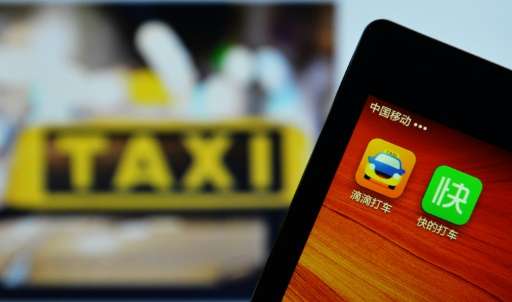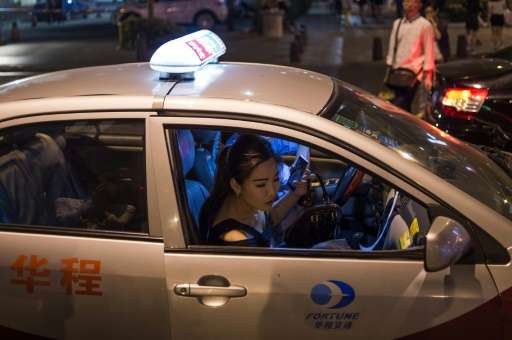War of words among China ride-share rivals

The controversial boss of ride-sharing app Uber said Monday its biggest Chinese rival is spending as much as $80 million a week or $4 billion a year on subsidies, intensifying a war of words between the bitter competitors.
"We're clearly spending less than Didi in subsidies," said Uber founder and CEO Travis Kalanick, referring to the homegrown market leader.
"We're spending less per trip, and we have a larger balance sheet."
Both firms raised billions from investors last year as they try to secure their positions in the fiercely competitive market, offering both drivers and passengers subsidies that have proved a boon to Chinese consumers.
Didi dismissed Kalanick's figures as "wildly creative".
The Uber CEO told a press conference announcing a partnership with Chinese conglomerate HNA Group: "Our best information now is Didi is spending 70 to 80 million US dollars per week in subsidies, that's almost four billion a year.
"In the last year we've gained significant market share in China, and spent far less than that. It's not just about how much you invest, it's also about how efficiently you invest it."
Uber China was established last year and has so far committed to spend roughly $1 billion in the country, where it says it is currently active in 22 cities.

Five of the firm's top 10 cities by daily global rides were in China by the end of 2015, it says, with the southern metropolis of Guangzhou at number one.
"We are making significant investments in dozens of cities here in China, and at some point it will be hundreds of cities here in China," Kalanick said.
But the Silicon Valley company—which has partnered with China's largest search engine company, Baidu—still lags Didi Kuaidi, which was formed from the merger of two firms backed by the Chinese Internet giants Alibaba and Tencent.
Didi says it has operations in 199 cities. According to a report by Beijing-based Analysys International, in the third quarter of 2015 Didi Kuaidi commanded over 83 percent market share of active users in China, compared to Uber's 16.2 percent.
It said Monday that it completed more than 200 million rides in December, taking its 2015 total to 1.43 billion, the official Xinhua news agency reported.
Didi Kuaidi spokesperson Sun Liang told AFP: "Uber is being wildly creative about our numbers.
"Didi holds over 80 percent of the market, which means our competitor has to bleed subsidies to make up for inadequate numbers of riders and drivers," she said.
"Our numbers show we are maintaining 10 times as big a rider/driver network at one fourth of the rival's unit cost."
Ride-sharing apps threaten old-style Chinese taxi firms, and officials have proposed tighter regulations on them.
© 2016 AFP


















